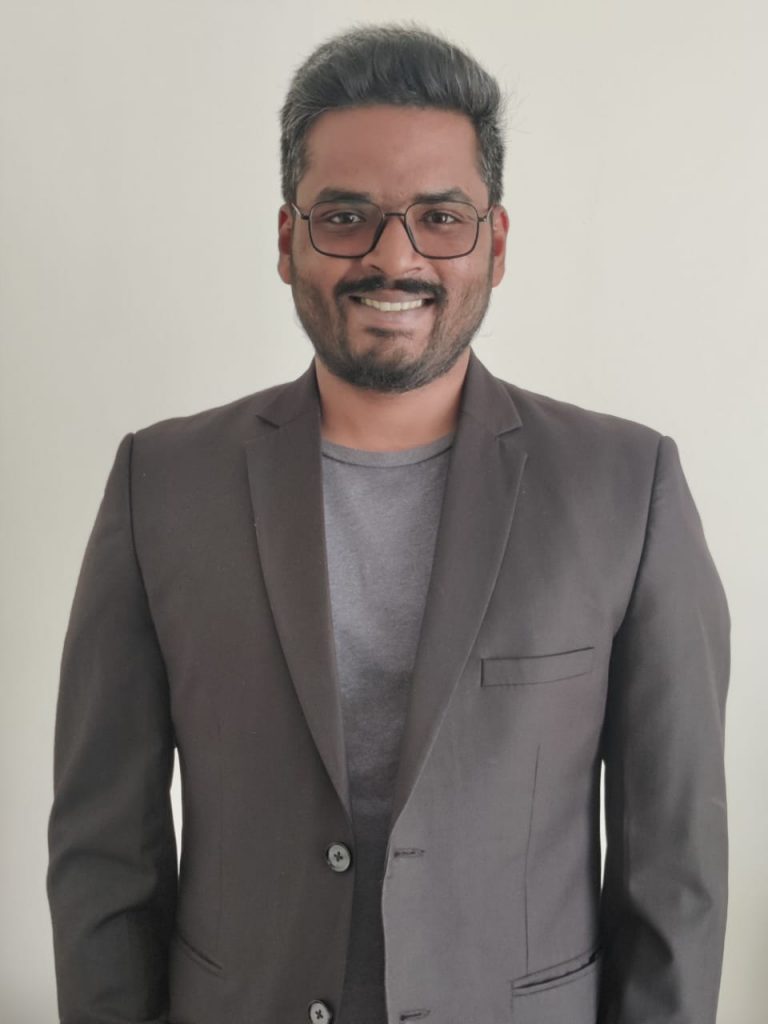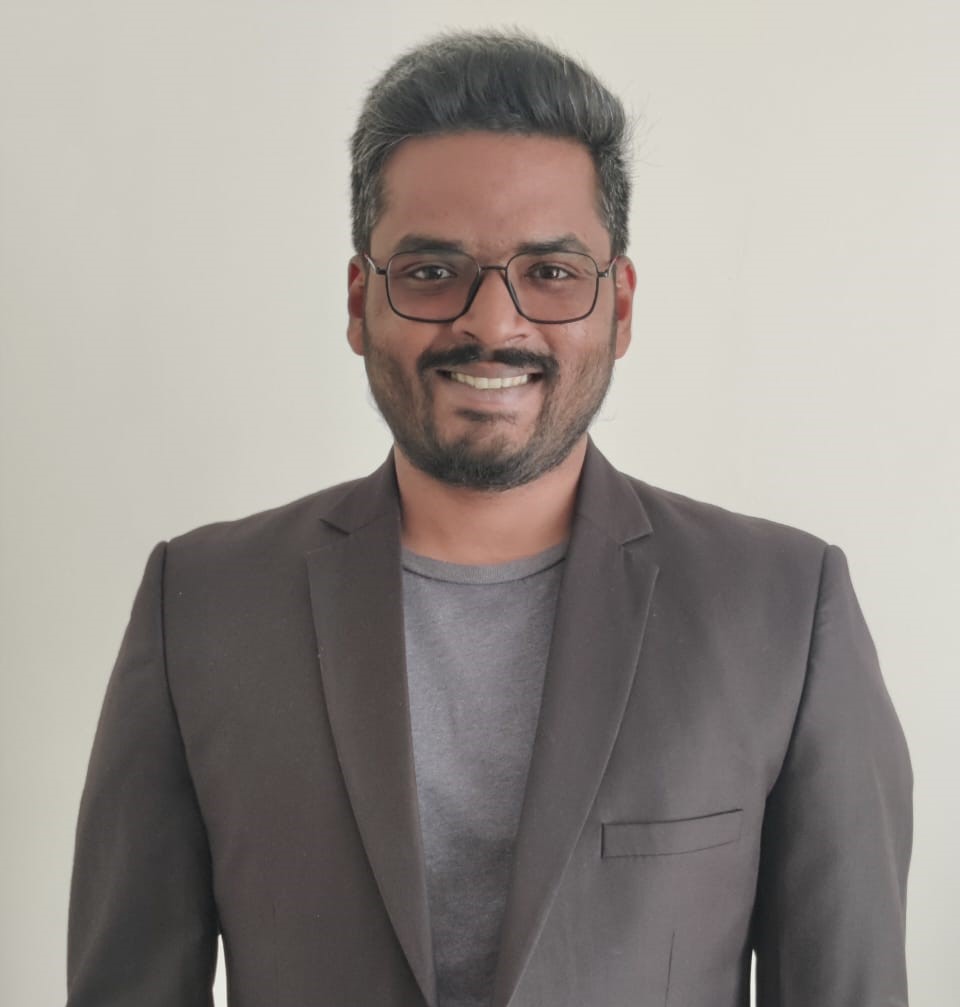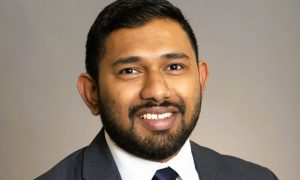This interview has been published by Namrata Singh and The SuperLawyer Team

You made a transition from a career as a musician and music producer to practicing law, specifically specializing in Intellectual Property Rights. Can you share the pivotal moment or realization that led you to shift your focus to law, and how has your background in music influenced your approach to your legal practice?
Firstly, I did not have a career as a musician. I started playing the keyboard when I was 12 (all thanks to my father), and later taught myself how to play the piano. Eventually, I started writing and composing. I even wrote during my board exams, just letting out my thoughts and experiences on paper. While I wanted to become a musician back then, my parents were clear when they said ‘get a degree’ and then to follow my passion. So, music really did not have anything to do with me pursuing law. Just wanted a degree.
When I was in college, I started playing in a couple of local concerts and worked on a few documentaries/short films for my friends. The two worlds of music and law came together when I was interning in 2012 in Bangalore, and I read about Entertainment and Media Law. The logic was, law is in everything around us, so why not in music? I started finding case laws, scope of the field and how to make a career as a Media and Entertainment Lawyer. I got support from my then senior I was interning with, Mr. Harikrishna Holla, who without a moment of thought, gave me case laws to begin with. Over the next 3 years of my bachelors, I interned at renowned IP firms, with a specific focus on Media and Entertainment.
To be honest, the process of writing, composing, producing music, watching my friends direct, edit or write scripts gave me the behind the scenes experience. This really helped in understanding contracts, and how Copyright works. Today, when I am advising an artist, or just talking to them about their music (because why not), I understand it much more than a few of my contemporaries. The Artists also like it when I do not ask them to explain technical terms.
There’s nothing to complain about, as I am living the best of both worlds and finally I am able to do what I always wanted to do.
As the founder of SIVARAMAKRISHNAN LAW OFFICES, what principles guide your approach to providing legal solutions, particularly in the realms of Business and Intellectual Property Rights?
Before starting my own practice in 2021, I had worked with law firms and media companies. I dealt with both Indian and international clients/entities and when I decided to go independent, I found my place in working with start-ups and individual businesses. I figured that there are start-ups/small businesses with less than 5 employees, and have freelancers or consultants on board serving them in their day-to-day activities, so they might not need a law firm with many lawyers on board.
Thus, I started pitching my services as an IP and Business lawyer, who will not only take care of their IP portfolio or streamline it, and will draft/review contracts for them at a cost which is nominal. Even the businesses understood that there is a lot that can be taken care of with a minimal team and less resources.
One principle I stand by till date is, giving time to the clients. Working with law firms, I saw that the business decisions in big companies are taken internally, and the work that was sent across was limited. On the other hand, small businesses suffer as they do not have anyone on board, thus, I proposed I will attend internal meetings, conduct negotiations for the clients, and advise them based on their vision and future prospects. Till date there are a few clients who take note of this and want my presence or time as if I am part of their management team.
Lastly, most businesses run away from the thought of reaching out to a lawyer. It has a lot to do with the costs they will incur, and the stereotype image of a lawyer/advocate. So it’s better to make them comfortable with the thought that lawyers are essential and bring value to the table. I also tell them that if they start their business properly, the likelihood of them running into any kind of problems when they grow or have an exit, reduces.
All my clients and those who approach me, know how I work. So if anyone is in line with my thoughts, they will stick around. Just give them something extra.
Your experience covers various industries, including entertainment, packaging, FMCG, healthcare, and finance. Among these diverse sectors, is there a particular type of case or client that stands out as the most memorable or challenging for you, and why?
One case does stand out for me, and is still very close to my heart. When I was working with a law firm, I worked on a proposition i.e. ‘Registration of geographical marks’. During the registration process of that geographical trade mark, it was challenging to explain to the Trade Marks Examiners that the mark applied for was eligible and entitled to registration. A similar matter was being heard before the IPAB for the similar proposition, and I was working on that too. Unfortunately, the order was unfavourable and we had to file a writ petition before the High Court of Delhi. With little to no experience in handling a litigation matter, I was given the task to draft it, and research for the proposition.
I still remember I researched the changes in the Indian Trade Marks Law from the 19th Century till then, and also learnt how the common law developed internationally. I struck gold when I found a similar case which was decided by the UK Intellectual Property Office. It felt amazing to have found at least an explanation to the proposition, and then began the process of drafting the Writ. We finally filed the Writ Petition and got a decently favourable order based. That was my first litigation experience.
My key takeaways from this experience were; 1) that part of being a lawyer/advocate is to think out-of-the-box most of the times, and that’s how the law remains dynamic for the times to come; 2) I learnt how a matter is filed and presented before the Court; 3) gave me confidence in dealing with challenging work. Today, because of that amazing experience, I am advising other Advocates in IP matters as an external counsel, and also helping businesses solve their issues from management structures to business proposals.
For me, the major credit goes to my seniors who had my back at that time.
Congratulations on being credited as the legal advisor for the feature film “Chitrakut” (2022). Can you share your experience working on this project and any unique challenges you faced as a legal advisor for the film industry?
Thank you, I ticked it from my bucket list. The film had already premiered at a film festival, and the Producer/Director of the film reached out when they were editing the film for the big screen. That’s where I worked closely with the production team on their rights and interests in various assets of the Film. We negotiated and entered into various film distribution, music distribution and rights management agreements, among other things.
The best part was it was the Producer’s debut film, and so was mine (as a lawyer. There were back to back meetings and research that I had to take up, to ensure that the project sails smoothly. It was an amazing experience to see my name up on the big screen, and I still thank them for allowing me to be a part of it. That opened the doors for similar projects.
I think if I have to pin on something as a challenge, it would be the fact that I worked on it alone, independently. I had only been independent for 2 months before I began with the project, so this was a good boost. I am surely waiting for more projects.
You’ve worked closely with Bollywood singers, musicians, and publishers. In your experience, what are the current challenges and opportunities for artists in the music industry, especially concerning royalties and benefits?
It’s unfortunate that the term ‘Royalty’ has been glorified so much that the artists feel that’s the only point of concern for them. They can’t be more wrong, as royalty is only one stream of revenue for them.
India has thousands, if not lakhs of artists in India, who are day in day out writing, composing, producing music, collaborating with other artists, but I bet majority of them do not think of it as a business. Sadly, many of them are not even registered with the IPRS (Indian Performing Rights Society). I personally believe many of them believe in fame or celebrity status, or want to be signed by a which is not wrong, but only a tip of the iceberg. If history has shown us anything, it all fades away, for most of them.
How does one resolve this? Artists need to start learning and understanding the concepts of publishing, revenue share and most importantly about their rights. I am pro towards curriculum which teaches artists about the music business, but many of them are still unaware of the insights. I have been working with artists who come from small towns, and they had never dealt with contracts. Some even started using ChatGPT and don’t have any idea about what they are signing.
Today, there are many YouTube channels, podcasts, articles, etc. which share a lot of information on ways to scale your music career. I even know artists in my peers who have taken up certificate courses in media and entertainment law. Even if someone cannot learn due to their limitations or circumstances, there are lawyers, managers, freelancers, and even senior artists who are ready to assist them with their issues.
Lastly, there are associations such as MCAI – The Music Composers Association of India, IMI (Indian Music Industry), ISAMRA (Indian Singers And Musicians Rights Association), among many others, who are not only providing information to artists, but they will get access to a community.
I have coined my 3C’s, 1) Create; 2) Contract; 3) Collect.
As someone who believes in making an IP conscious India, how do you break down complex legal concepts to make them more accessible, and what steps do you think are crucial for increasing awareness of intellectual property rights in the country?
Since the time I was introduced to IP in my second year of law school, I saw the world differently. I always say this, ‘IP is in everything’, whether it’s the phone, website, content, chair, to medicines. And how many people would actually know that they have created IP? Do they exploit it effectively?
In the past 3-4 years I have uploaded and written content on specific topics on social media. I answer questions on Quora, and don’t look at it as a platform for lead generation. There are some very interesting questions that are posted there by people, which shows how aware they have become about their rights. I see a lot of informative content from my contemporaries on social media.
I never intended to make an IP conscious India on my own. It’s impossible and foolish to think that I could. So it becomes important that the future generation of lawyers know the kind of opportunities that lie in the field. I have taken up opportunities to conduct workshops/seminars in colleges, both offline and online, where the students get a hang of what they can do in the world of IP. Even if I am able to make an effect on 2 out of 100 students, I consider it a job well done. Some of the students who interned with me have gone out and shared knowledge and information to others around them.
Effective resources and courses for non legal businesses are important. IP Law is already part of many creative education programs, but there needs to be more conversation on them. Conferences, online seminars, interviews, Q/A rounds, etc. are being done and have to be conducted by many more people.
In addition to your legal practice, you’ve conducted seminars in colleges to provide a unique perspective on IPR. What motivated you to engage with students in this way, and what message do you aim to convey to the next generation of legal minds?
I learnt and perceived law in a different way. I was not academically strong, and I would give credit to the places I interned and worked for what I have learnt. My approach to law was defined by the practical aspects. I understood music so it became easier to understand the process of creation and distribution of the songs. I focussed on what was happening in the media and entertainment industry, understood the business before I advised a client.
Most of the students, till date, think that one has to become an Advocate to have a decent career in law, which is so not true. I have hardly done any litigation, and I have found so many avenues to curate my practice today. I am an advisor, consultant to the management, personal manager to artists, and even deal with their royalties. So why not share the way I did?
Time to time I have spoken at webinars, seminars and workshops for colleges, and I aimed to share information on practices which are not commonly heard of. To keep things interesting, I share cases or instances which the students can easily relate to, which eventually peaks their interest. My advice to young minds has always been to look beyond what they see. Again, law is in everything, so definitely there is something for everyone. You could be an artist manager if you’re into music, or work with production houses if you’re a movie buff, book readers can review scripts (yes, lawyers do that), people with an inclination to managerial positions can be part of a company and fix it from the inside. It’s just a matter of time before they figure out their interest and start working towards it.
Your journey involves working with renowned law firms and companies, including your tenure at Showbox and 1 Sports. How has your experience working in these different environments shaped your understanding of the legal landscape, especially in the media and entertainment sectors?
I saw a stark difference between the practices lawyers have to take up when they are at a law firm or at a company. I feel that in the field of IP, the experience in a law firm is dependent on the portfolio that you are alloted whereas, at a company you’re like the legal part of a brain. At the law firm, I got to work on different kinds of trade mark matters for clients from various industries. But at the company I got to know the internal decisions of brand creation, as I got to work with various departments. It helps a lot and gives one an edge when they work closely with the business. Some are in fact able to achieve it working at law firms.
At Showbox, I could interact with industry professionals such as A&R (a concept I came across for the first time), and worked on creation of different IPs for the channels. At 1 Sports, I got to work on Distribution deals for the channel along with broadcasting agreements. In short, I not only understood and drafted , but saw most of them practically happen in front of my eyes.
The icing on the cake was to meet artists.
Looking ahead, you mentioned working on a model for IP Asset Management. Could you provide a glimpse into how this model aims to benefit individuals and businesses in effectively managing their IP portfolios?
In the past two years I have come across clients with different sizes, revenue, and approach to business. But there was one thing common in most of them. They don’t understand the difference between ‘registering a trade mark’ and ‘creating a brand’. That’s where I bring my expertise and resources.
A business might already have an IP attorney on record, but creating a brand is an internal process, and usually a lawyer is not engaged by the company except during coining the trade mark. But, have they determined their IPs? In most cases, no. So, this becomes my chance to become a consultant for the Company, for a short period of time, where I would shortlist their IPs, make sure appropriate applications have been filed, rights and ownerships are in place, and finally, they are streamlined so their regular lawyer can take care of it.
It’s purely an IP analyst kind of a position, with no intent to solicit clients. I have already done this for 3 clients last year, and that’s how I came across this idea. From what I see, this is beyond the generic IP registrations services. The whole process to build a deck on it is still pending, but the work has already started for my regular clients.
On a lighter note, outside of your professional life, do you have any hobbies or interests that you find particularly rejuvenating, and how do you balance your work with personal pursuits?
I have a piano at home, which I would switch on and start playing random songs, latest or old ones. Sometimes good compositions come out of it by accident. I write poems too.
As a kid I was a bookworm, which I couldn’t keep up when I started working. But for the past two years I have managed to finish around 15 books each year. I know it might not seem like a lot, but I am glad I could catch up on that childhood interest. Past 6 months I have read a few non fiction books, which have really helped in my management, negotiations and people skills too.
Being a sole practitioner, I have some freedom and control over my time. I can decide the clients I onboard. Sometimes I push the brakes on a random weekday, only to watch a movie and not work. I hope my clients don’t read this!
But there are consequences of habits too. My family might complain that I sit late at night to work, while I have the day to keep things light. Now, as I am growing older, I have realised that health is important and there has to be a system to keep everything from work to life in check.
Everything is fine till it’s kept under control.
I would really like to thank Team Superlawyer, especially Namrata for reaching out. It has been a pleasure answering the interview questions, which have been well crafted. I think I can take this off of my bucket list!
Get in touch with K P Sivaramakrishnan-


























